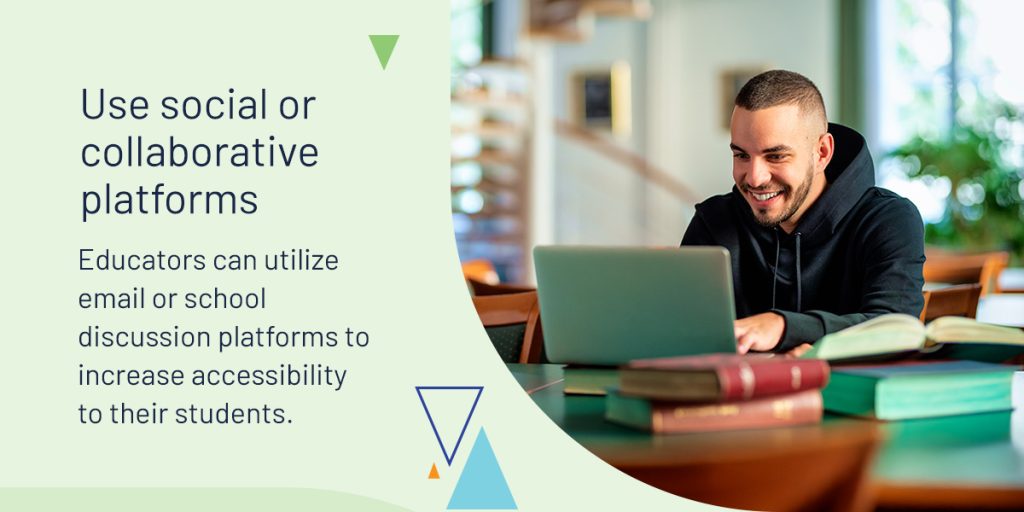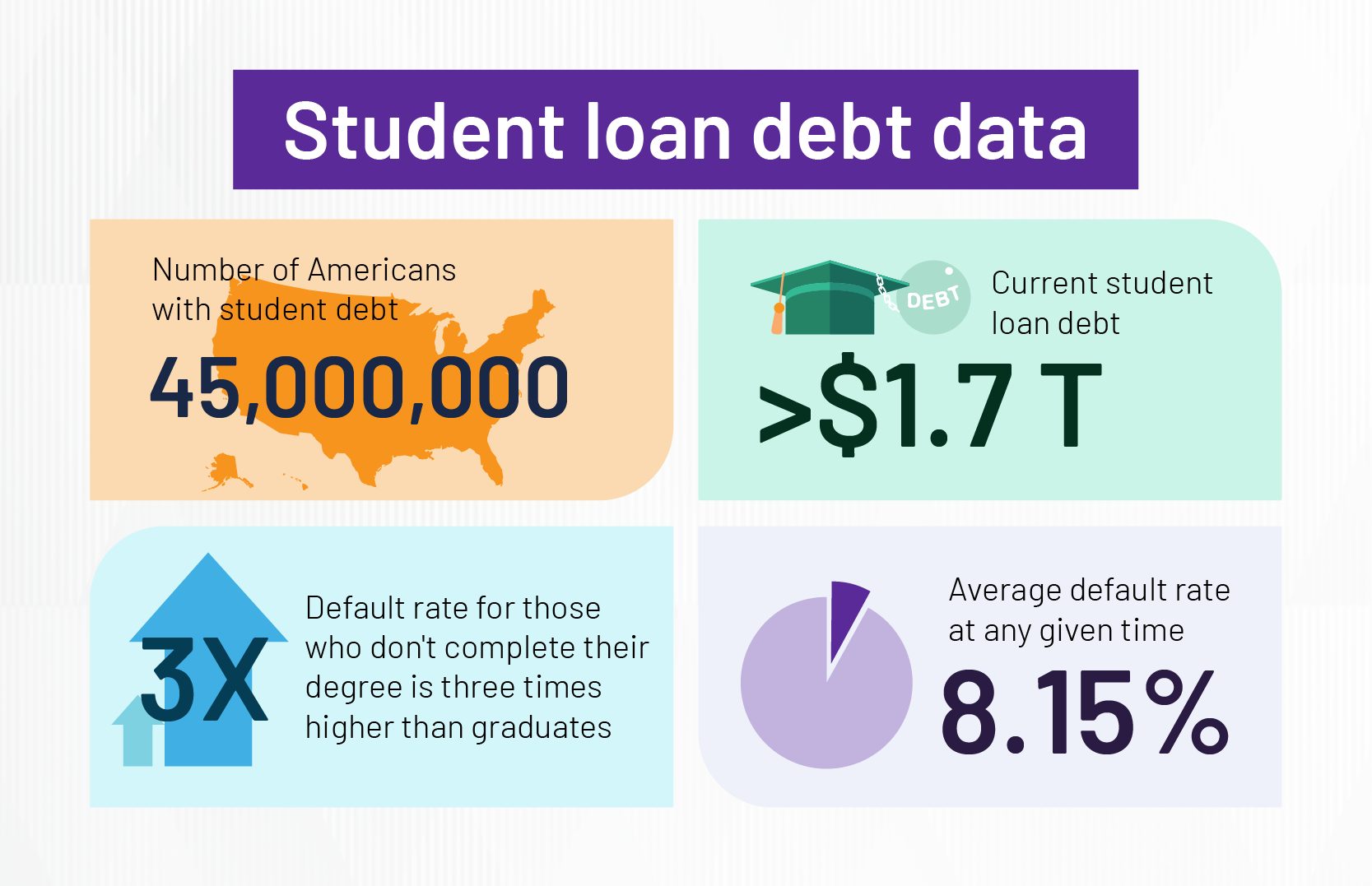
Nationwide, colleges and universities struggle to secure suitable funds, fill their halls with qualified staff, and implement student retention best practices. With many learners opting to forego college altogether, institutions are on the lookout for strategies to improve student success and increase retention. Building rapport is a highly accessible and affordable method to maximize the value of higher education while creating an environment students can’t wait to take advantage of.
Rapport prompts professors to create an emotional connection between themselves and their students to establish trust and improve the overall learning environment. To effectively develop rapport with students, professors can take simple actions like sharing interests, speaking with students after class, and learning each student’s name. These actions contribute to a stronger connection between students and instructors. Understanding rapport and implementing strategies to create a more engaging environment can have immense impacts on the student learning experience and improve your institution in several ways
What is rapport?
At its most basic level, rapport is a relationship between people or groups that emphasizes communication and understanding one another’s ideas and feelings. In the higher education landscape, rapport is the relationship of students with their instructors — an established connection that grows naturally or with common interests. This relationship grows as professors learn more about the learners in their classrooms. Establishing a meaningful rapport is a fantastic strategy for conveying information effectively and is crucial to building a safe, supportive, and productive environment.
The importance of building rapport and the impact on student success
Between college’s social, emotional, and intellectual aspects, it can be tough for students to find their footing. Throw a negative teacher interaction on top, and they could experience more stress or anxiety than they can handle. Establishing rapport is an essential skill that can do a world of good for all parties involved. It begins on the first day with the first few interactions and lasts the rest of the academic period.
Allowing an advisor-student relationship to develop will have a positive influence on a student’s academic success, now and into the future. True relationships encourage students to care about and continue with their studies and thus increase student retention rates. Attentive teachers fuel this passion for education, striving to engage their students throughout the learning process by creating a lively atmosphere and fostering meaningful communication to overcome obstacles.
Creating student rapport provides benefits, including:
- Higher student motivation: Positive classroom rapport can boost a student’s sense of belonging, which impacts their engagement, motivation, self-worth, and persistence. Students who enjoy rapport with instructors are more motivated to complete assignments and engage in class discussions.
- Better opportunities for intervention: Creating an open and trusting environment allows you to identify students who are struggling or falling behind and take proactive measures to assist them in getting back on track. Classroom rapport can encourage students to stay in school, prevent students from giving up, and give students an opportunity to access resources or materials to strengthen their understanding.
- Elevated overall student satisfaction: Students will have a more positive outlook on their higher education institution and education when they feel safe and supported. Actions as simple as a professor greeting students as they enter the classroom can boost student satisfaction and have an impact on grades and persistence.
- Reduced anxiety: Negative student-teacher relationships can increase stress, aggression, and anxiety in students. While it’s not always easy for professors to connect with their students, getting to know them will make them more likely to open up and feel comfortable. This collaboration benefits your educators by improving faculty engagement to better facilitate learning and encourage student development.
How to encourage building rapport with students
Building rapport can happen differently for every instructor and student. Some instructors may be more inclined to share personal anecdotes during class, while others may offer extended after-class time for questions and conversations.
Regardless of the exact approach your educators take, it’s crucial to encourage them to focus on the student. Instructors spend a lot of time lecturing, giving instructions, and leading group discussions. Building rapport and having conversations with students is an opportunity to turn the tables and encourage students to share pieces of themselves. Instructors should shape conversations around student interests, ambitions, concerns, and triumphs. Educators should also remain nonjudgmental and avoid interrupting students when speaking.
Check out these additional tips your instructors can implement to foster a positive environment and successfully build rapport with students:
1. Learn and use student names
Learning and using each student’s name is one of the best ways to foster a productive learning environment. Using student names builds classroom community and can make students feel more comfortable, increase focus, boost engagement, and reinforce an instructor’s commitment to inclusivity.
2. Ask personal questions
Instructors can ask students about their hobbies, outside interests, and long-term aspirations to get to know them better. Educators can also use this information to find shared interests and bond with students. Sharing opinions or experiences, such as living in the same hometown, having a favorite sports team, or reading the same books for leisure, can foster a sense of camaraderie.
3. Create relevant examples
Personalization can improve learning outcomes and increase student engagement. Instructors can make course material relatable with personally relevant examples during lectures and discussions. Educators can also use student information to personalize their coursework, further connecting students with their students.
4. Give students extra time
Instructors can arrive early to class and stay late occasionally to encourage conversations with students in a relaxed setting. Offering office hours can also encourage students to visit with professors outside of class times. This time allows instructors to provide individualized help and encourages students to create stronger connections with their professors. Recent studies highlight that office hours have the potential to enhance academic performance and impact learning outcomes.
5. Use social or collaborative platforms

Social networking may have an impact on student-professor relationships. Educators can utilize email or school discussion platforms to increase accessibility to their students. Instructors can detail to students their preferred means of communication outside of class to facilitate respectful, two-way conversations.
6. Provide a safe space
A safe space encourages self-expression and can make students feel more comfortable voicing their opinions and sharing their experiences. Educators should practice active listening during conversations, avoid judgment in interactions, and encourage open and honest discussions.
7. Demonstrate mutual respect
Student-professor relationships are more productive when there is mutual respect. Actions like referring to students by their proper or preferred names, acknowledging contributions, using inclusive language, and being approachable can help instructors demonstrate mutual respect to students.
8. Empower and involve students
Involving students in decisions and giving them a choice in relevant aspects of the coursework can impact student motivation and engagement, contribute to a positive sense of well-being, and boost student satisfaction. Additionally, your institution can benefit from involving students in decision-making by highlighting your commitment to diversity, inclusivity, and the student experience.
9. Be consistent and fair
Consistency is key for many elements of higher education, including building rapport. Instructors should exhibit fair tendencies, treating all students with the same level of care and attention. Each student’s perceptions of fairness in the classroom impact engagement and learning, making it crucial for educators to exhibit fair and consistent practices.
10. Use nonverbal communication
Studies show that educators who use non-verbal language properly have better relationships with their students. Relaxed body language, eye contact, and gestures can convey openness and ease. Alternatively, instructors should avoid nonverbal cues like looking down when speaking, frowning, stiff body language, closed fists, and pointing when possible.
What could Watermark do for your institution?
Tips to cultivate meaningful student relationships
Creating ongoing rapport is about how you conduct yourself throughout student interactions. Learning outcomes are much more likely to improve if students feel comfortable around their instructors and have an authentic connection with them. Building meaningful rapport with students is more than checking items off a list. It requires lots of active listening and a genuine interest in who they are and what they want to get out of learning.
Rapport building should be a pivotal part of each instructor’s teaching strategy and emphasize acting genuine, natural, and professional. Regardless of the exact approach your instructors take, it can be helpful to keep these tips in mind:
- Be positive throughout conversations.
- Demonstrate empathy and respect.
- Make intellectual connections with each student.
- Don’t be afraid to crack a joke now and then when appropriate.
- Be consistent and follow through.
- Relate to students on personal matters when relevant.
- Highlight each student’s strengths and interests.
Ensure student success with Watermark
Building rapport with students plays an essential role in their success. By building rapport, instructors get to know students and create a relationship of mutual respect. Empower your instructors to evaluate their rapport efforts and witness student success firsthand with Watermark.
The Watermark Student Success & Engagement software platform can help track and guide these important interactions between advisors and students. Using this software, student advisors can understand whether their efforts to build rapport with students are fruitful. To learn more about the other features and tools available in Watermark Student Success & Engagement and how you can help improve retention and student success at your institution, schedule a demo with us.
















































































































































































































































































































































































































